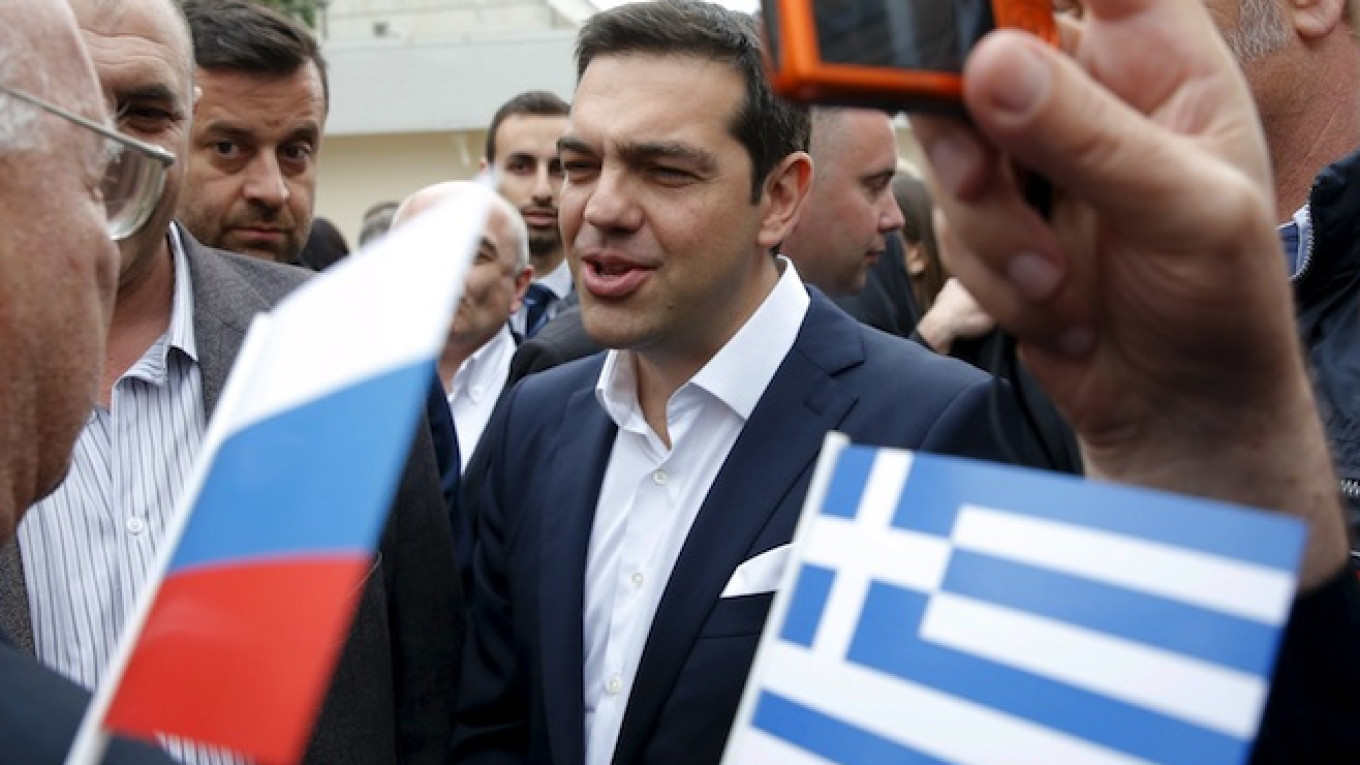MOSCOW — Moscow is just an observer on Greece's debt crisis but wants the euro to trade normally because part of Russia's foreign exchange reserves is denominated in euros, Prime Minister Dmitry Medvedev said on Friday.
He again signaled that Moscow had not offered to help bail Greece out, according to Russian news agency reports.
"We are only external observers ... we don't take decisions about the fate of Greece's participation in the euro zone currency area and, naturally, don't have any relation to the formation or repayment of its debts," Interfax news agency quoted Medvedev as saying.
"But in general we are interested in the euro behaving normally as a currency," Medvedev said.
The euro was Russia's main reserve currency at the start of the year, with around 46 percent of the country's forex reserves in euros or euro-denominated assets, the latest central bank data showed.
Russia held just under 40 percent of its forex reserves in dollar or dollar-denominated assets at the start of the year.
As of the end of last week, Russia had around $360 billion in gold and forex reserves.
A Message from The Moscow Times:
Dear readers,
We are facing unprecedented challenges. Russia's Prosecutor General's Office has designated The Moscow Times as an "undesirable" organization, criminalizing our work and putting our staff at risk of prosecution. This follows our earlier unjust labeling as a "foreign agent."
These actions are direct attempts to silence independent journalism in Russia. The authorities claim our work "discredits the decisions of the Russian leadership." We see things differently: we strive to provide accurate, unbiased reporting on Russia.
We, the journalists of The Moscow Times, refuse to be silenced. But to continue our work, we need your help.
Your support, no matter how small, makes a world of difference. If you can, please support us monthly starting from just $2. It's quick to set up, and every contribution makes a significant impact.
By supporting The Moscow Times, you're defending open, independent journalism in the face of repression. Thank you for standing with us.
Remind me later.


